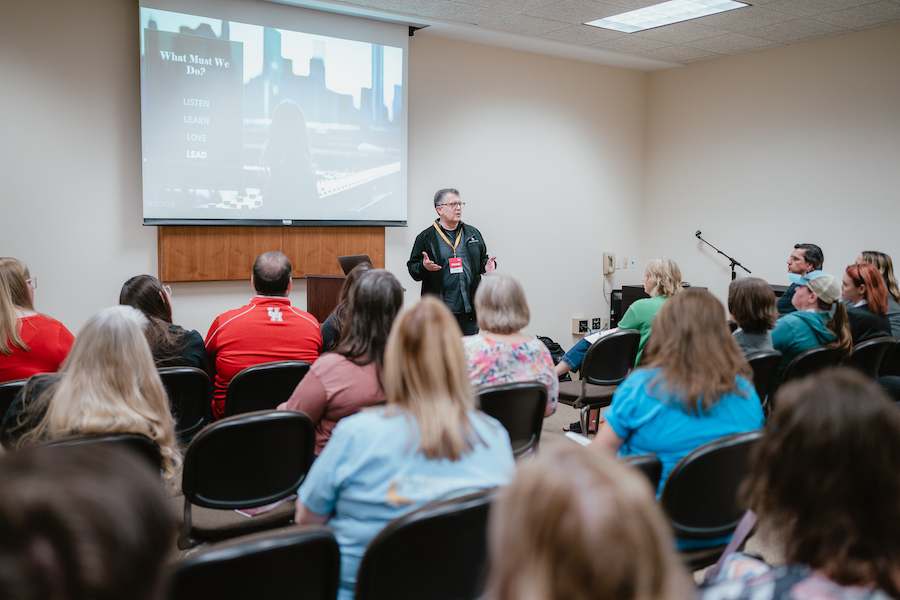Share the Gospel with a child


Editor’s note: this article appears in the Fall 2021 issue of Southwestern News.
Overwhelmed, unsure how, and too much responsibility? Do these terms cross your mind when thinking of sharing the Gospel with a child? Many of us feel ill-equipped to share the Gospel with an adult, much less with a child. But, what an honor to share God’s plan for salvation with a child.
When a child begins asking questions about becoming a Christian, you should stop, pray, listen, and then engage in a conversation.
What should a child understand before becoming a Christian? It is important for a child to understand the concept of sin. Often children understand the concept of sin, but they do not think they are sinners. Another important concept for children to understand is they are sinners. Not only are they sinners, but their sin is against God and this sin separates them from Him. Do they understand who Jesus is and that He died for our sins? How does one know what a child understands? By asking open-ended questions. Questions requiring a yes or no answer do not require much thought. Open-ended questions require thought and a correct answer.
When the child is ready to hear the Gospel, share the plan of salvation in simple terms. Use wording the child will understand. Refrain from using abstract phrases or illustrations. For example, say “Jesus died on the cross to save us from our sins” instead of “we are covered in the blood of Jesus.” While we are covered in the blood of Jesus, most children will not fully understand the symbolism of this phrase.
Consider a method of sharing the Gospel written for children. The Gospel, God’s Plan for Us published by Lifeway is an excellent tool when talking with a child. This method incorporates the ABCs of salvation: admitting sin, believing in Jesus, and confessing Jesus as Lord and Savior.
Remember to allow the child to say his/her own prayer. When the child is ready to become a Christian, explain the prayer includes the admission of sin, asking for forgiveness, and asking Jesus to be his or her Lord and Savior. The hope is by the child stating the prayer in his or her own words instead of repeating an adult’s words, confidence in their decision will prevail over times of doubt. After the prayer, remind the child that God is always with him or her and He will never leave (Hebrews 13:5).
After leading a child to a profession faith in Christ, every effort should be made to talk with the child’s parents about this life-changing decision.
Karen Kennemur serves as professor of children’s ministry and occupies the Bessie M. Fleming Chair of Childhood Education at Southwestern Seminary.



